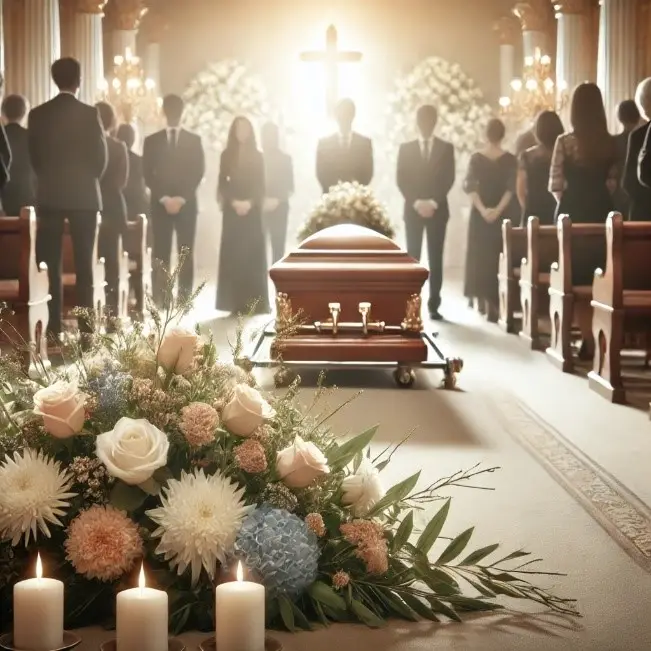
The death of a loved one is one of the most challenging and emotional experiences in life. In addition to dealing with grief and loss, family members are also faced with the responsibility of making funeral arrangements. However, many people are often unclear about who has the right to make funeral arrangements. This essay will explore the laws and regulations surrounding funeral arrangements and the parties that have the legal right to make such arrangements.
The right to make funeral arrangements typically falls to the deceased’s next of kin. Next of kin refers to the closest surviving relatives of the deceased, such as a spouse, children, or parents. In the absence of a living next of kin, the right to make funeral arrangements may fall to the executor of the deceased’s estate or a close friend of the deceased.
However, the laws governing funeral arrangements vary from state to state. For instance, some states have specific laws that define the order of priority for who has the right to make funeral arrangements. In most cases, the surviving spouse is the first in line to make funeral arrangements, followed by adult children, parents, and siblings. In the absence of living relatives, the court may appoint a public administrator to make funeral arrangements.
It is important to note that the right to make funeral arrangements is different from the right to dispose of the deceased’s remains. The right to dispose of the remains refers to the authority to decide whether the deceased should be buried or cremated. In some states, the right to dispose of remains is automatically granted to the surviving spouse, while in others, it is the executor of the estate who has this right.
In some cases, disputes may arise over the right to make funeral arrangements. For example, if there are several next of kin, they may disagree on how to proceed with the funeral arrangements. In such cases, the court may be required to intervene and make a ruling on who has the legal right to make funeral arrangements.
In situations where the deceased has not made any prearrangements or expressed any preferences for their funeral arrangements, it is crucial for the next of kin to communicate and make decisions together. They should consider the deceased’s cultural and religious beliefs, personal preferences, and financial circumstances. It is important to remember that the funeral is a way to honor the deceased and should reflect their wishes as much as possible.
One of the most effective ways to avoid disputes over funeral arrangements is by making prearrangements. Prearrangements refer to the process of making funeral arrangements in advance. This involves making decisions about the type of funeral service, burial or cremation, and other details, such as music, readings, and flowers. By making prearrangements, individuals can ensure that their wishes are carried out and that their loved ones are not burdened with making these difficult decisions.
When making prearrangements, it is important to communicate your wishes with your next of kin, executor, or other designated parties. It is also essential to document your preferences in a legal document, such as a will or advance directive. This ensures that your wishes are legally binding and can be enforced.
In addition to making prearrangements, individuals may also consider purchasing a funeral insurance policy. Funeral insurance is a type of insurance policy that covers the cost of funeral expenses. By purchasing a funeral insurance policy, individuals can alleviate the financial burden on their loved ones and ensure that their funeral arrangements are carried out as they wish.
Using the Gentreo Digital Vault, https://www.gentreo.com/family-digital-vault,, individuals can securely save and share all important documents related to funeral arrangements. The Gentreo Digital Vault is a powerful tool for storing legal documents, insurance policies, and personal preferences, ensuring that all necessary information is easily accessible to those who need it. By utilizing this resource, individuals can further protect their wishes and provide clear guidance to their loved ones during a difficult time.
In summary, the right to make funeral arrangements typically falls to the deceased’s next of kin, although this can vary from state to state. The right to make funeral arrangements is different from the right to dispose of the remains, which refers to the authority to decide whether the deceased should be buried or cremated. Disputes over funeral arrangements can be avoided by making prearrangements and communicating preferences with loved ones. It is also important to document these preferences in a legal document, such as a will or advance directive. Purchasing a funeral insurance policy can also alleviate the financial burden on loved ones and ensure that funeral arrangements are carried out as desired. Using the Gentreo Digital Vault, https://www.gentreo.com/family-digital-vault, to save and share this crucial information provides added security and peace of mind.
Don’t wait until it’s too late; start your estate planning journey with Gentreo today. By doing so, you’ll not only protect your loved ones but also gain the peace of mind that comes with knowing your legacy is secure. Click here to join now. https://www.gentreo.com/
This article is for informational purposes only and should not be considered legal advice. Consult with a qualified attorney or estate planning professional for personalized guidance.













